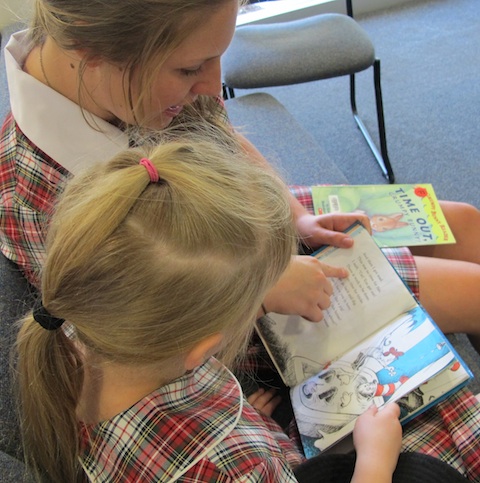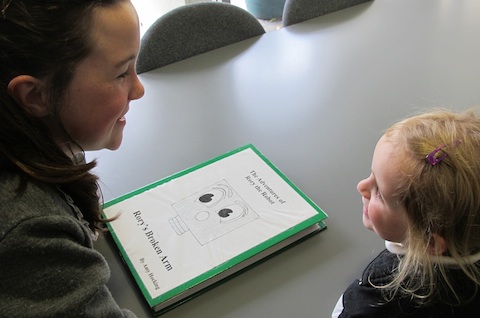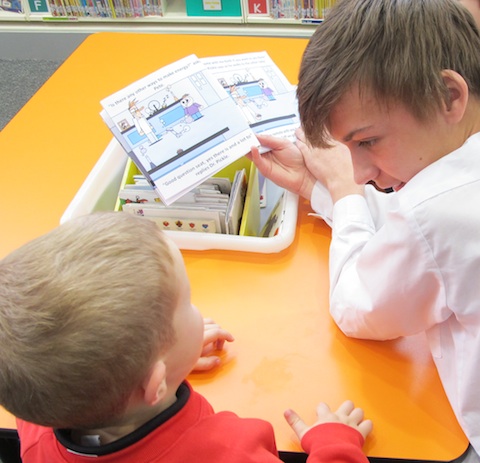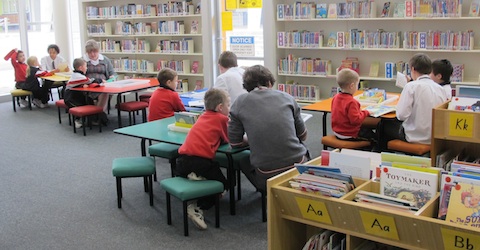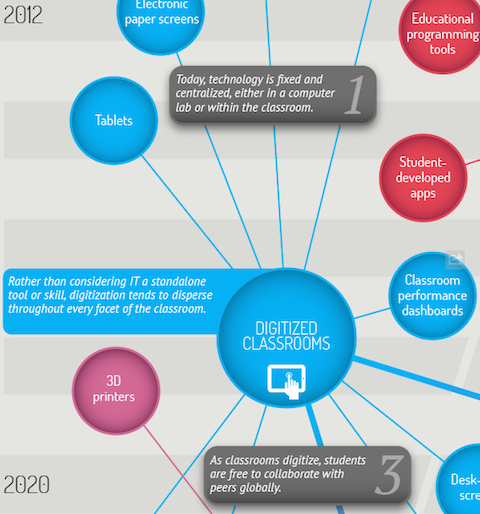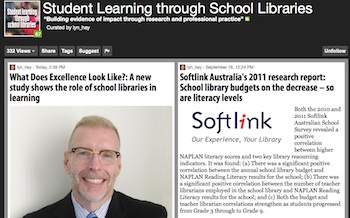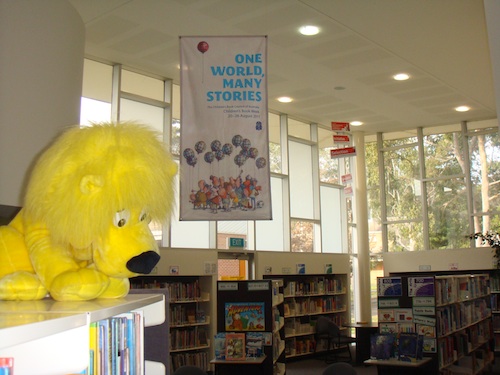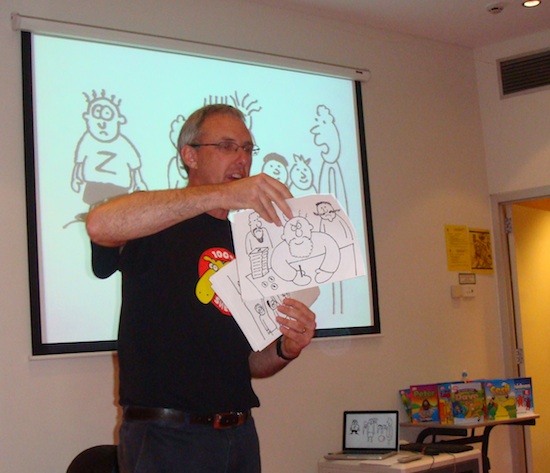Yesterday the Year 9 Child Studies students came to the IRC for their lesson . First they were taught about the stages of the development of literacy skills from birth to school age, with emphasis on the importance and inter connectivity of all forms of communication. The use of books, digital or print, as a foundation for literacy development was demonstrated with illustrations from baby’s first recognition of shapes on a page. The introduction of words that eventually introduce concepts of fantasy as distinct from reality was then discussed – the problems this can cause and the fun this can initiate.
The Year 9 students looked at the K-2 collection of books and as Year 3 was in the IRC ‘borrowing’ books at the time, their teacher allowed us to ‘borrow’ the students in 3B to read them stories and discuss their story choices. A great time was had by all!

